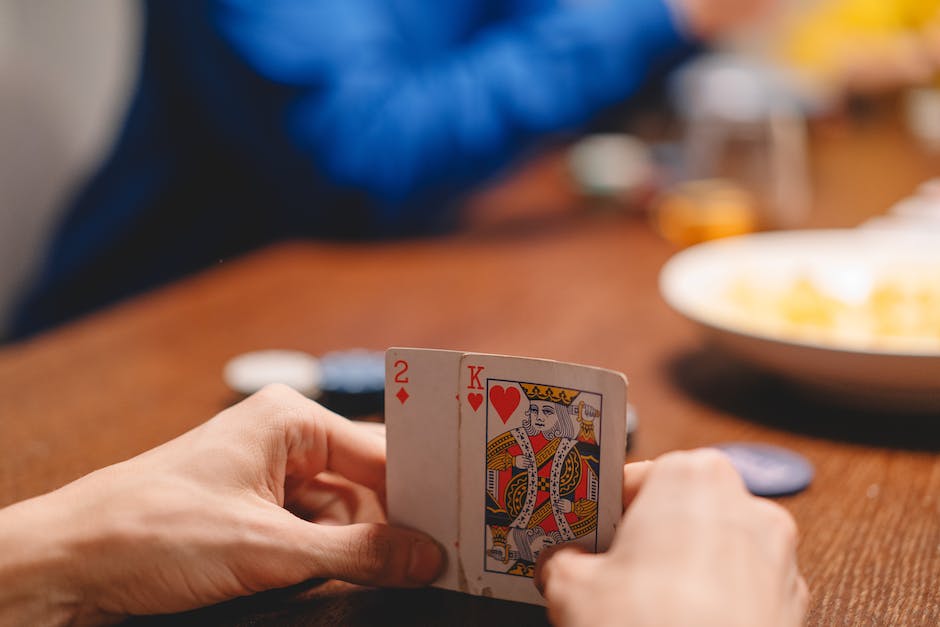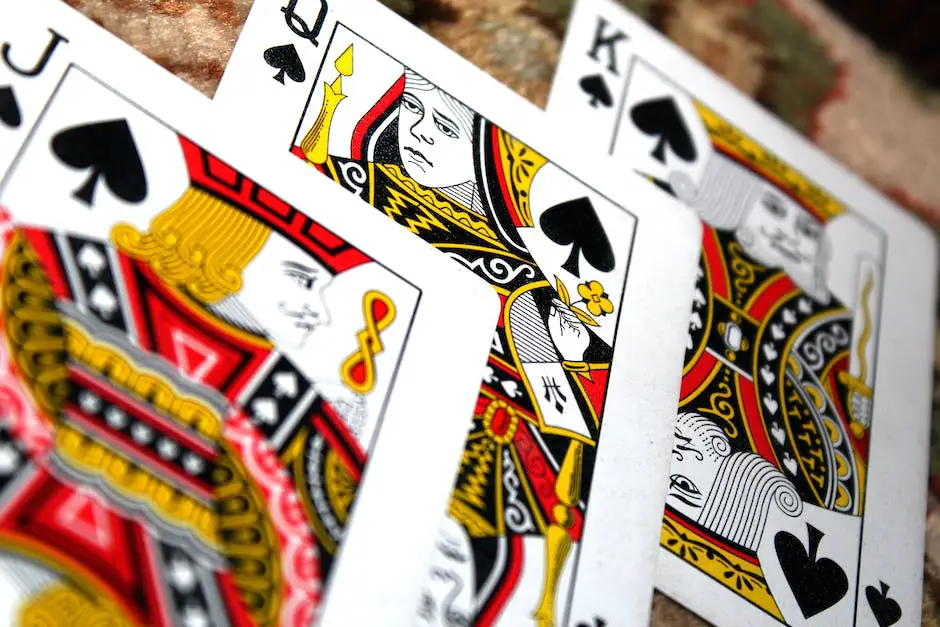Delving into the fascinating world of card games, we find euchre as a standout with its exciting blend of strategy and social interaction. As a trick-taking game for four, euchre demands not only an understanding of the game mechanics but also a keen sense of observation and communication with your partner. This exploration offers a solid footing in the game’s basic rules coupled with an in-depth look at effective strategies and techniques. From the significance of ‘following suit’ and the strategic role of the ‘trump’ to the intriguing dynamics of player roles, this elucidation presents a comprehensive guide for the uninitiated and the curious.
Understanding the Rules of Euchre
Understanding Euchre: An Overview
Euchre is a card game typically involving four players, split into two teams of two. Variations of taking tricks, declaring trumps, and scoring points set this game apart, making it engaging and exciting for players. Its history can be traced back to Europe in the 19th century, but Euchre has largely become a staple in American and Canadian card game cultures.
Basics of Euchre
Euchre is played with a deck of 24, 28, or sometimes 32 standard playing cards. It’s a trick-taking game, which means players aim to win individual rounds (tricks) in each game. Each player receives five cards, and the goal is to win at least three of the five tricks – but winning more tricks has advantages.
The Trump Card
Determining the trump is crucial. The trump card refers to the suit which will outrank all other suits for the duration of the gameplay. At the start of each round, the top card from the remaining deck (after the deal) is turned face up. Starting with the player to the left of the dealer and going clockwise, each player gets the option to either “pass” or declare the suit of the face-up card as the trump.
If all players opt to pass, the option of determining trump comes back to the dealer, who can either choose a different suit as the trump or declare a redeal.
Playing the Game
Once the trump has been decided, the player to the left of the dealer leads the first trick by laying down any card. The gameplay follows a clockwise direction. Each player then puts a card down, trying to match the suit of the leading card.
Here’s where the trump card suit gains its importance. If a player can’t follow the lead suit, they could play a trump card. This will outrank any other suit, thereby potentially winning the trick.
Keep in mind, when a trump is played, other players must attempt to play a trump card that out ranks it, if they have one.
Understanding Roles
Each player has a certain role in the game. The dealer is responsible for shuffling, dealing cards, and making a trump decision if the first round of options is passed.
The remaining players aim to either follow suit, win the trick by playing higher cards, or use their trump cards strategically to turn the trick in their favor.
Scoring in Euchre
Scoring in Euchre can be a bit peculiar, but absolutely crucial to understand. If the team that chooses the trump suit manages to win three or four tricks, they get a point. However, if they win all five tricks, they get ‘two’ points – this is known as a march or sweep.
Conversely, if the team declaring the trump fails to win at least three tricks, the opposing team scores two points, signifying that the trump-declaring team has been ‘euchred’ or defeated.
Euchre continues round by round, with the first team to reach a total of 10 points declared as the game winner.
Key Takeaway
Euchre is a game of strategy, understanding your partner’s gameplay, and making calculated decisions when declaring trumps and playing tricks. Its uniqueness lies in its flexible combat style and fascinating score-taking mechanism. The key is to practice and develop an understanding of the game’s nuances. It’s a game full of surprises, twists, and turns, wrapped in an encasing of thrill and anticipation.

Euchre Strategies and Techniques
Understanding the Basics: The Foundation of Euchre Strategy
At its core, the game is played by four players in two teams of two. Each player is dealt five cards, and the objective is to win a majority of the five tricks played each hand. One of the key mechanisms is ‘trumping’, where a player utilizes the trump suit to win a trick when they cannot follow the suit that was led.
Trumping: Making the Right Choice
The first strategic element in Euchre is deciding upon the trump card. In the game of Euchre, the team that wins the bidding round gets to select the trump. The power of trump cards cannot be overstated, as they have the potential to win any trick where they are played. The team that chooses the trump must make a calculated decision based on their hand. Should a player have a number of cards of the same suit, it may be advantageous to call that suit as the trump, thereby increasing the chances of winning tricks.
When to Overtrump or Undertrump: The Art of Deception
The timing and use of trump cards is critical to winning a hand. You often face a choice between ‘overtrumping’ or ‘undertrumping’. Overtrumping refers to trumping a trick when your partner is already winning it. While it may seem counterintuitive to overtrump your partner, there are times when it may prove beneficial. However, these are generally rare and specific situations, requiring careful judgment of the game’s state.
Undertrumping occurs when you choose to play a lower-ranking trump card. This can be used as a tactic to deplete the trump resources of your opponents early in the game, or as a signal to your partner when you wish them to lead a certain suit later in the round.
Going Alone: A Risk-Reward Decision
Another significant strategy in Euchre is ‘going alone’. This decision makes the hand a solitary mission for the player, excluding their partner from the play. Opting to go alone can yield greater rewards, as winning all five tricks will earn your team four points instead of the standard two. On the flipside, if you fail to achieve your objective when going alone, the opposing team scores two points. Therefore, deciding to go alone is a risk-reward decision and should be made after careful estimation of your hand’s strength.
Communication and Recollection: Essential Skills
Strategic play in Euchre extends beyond the mechanics of trumping and going alone. Good communication with your partner is paramount to success. However, coded messages and explicit discussion about the cards are generally frowned upon. Players need to develop subtle methods of communication, such as the order of card play and the decision to pass or pick up a card.
In addition, the ability to remember played cards is crucial. Keeping track of key cards like the Jacks and remembering which suits have been depleted can offer a critical advantage.

As we journeyed through the fascinating intricacies of euchre, it is evident that the game extends beyond the play of the cards. It’s a subtle dance of strategy, teamwork, memory recall, and timely decision making. The true charm of euchre lies not only in understanding practices like ‘trumping’, ‘going alone’, overtrumping or undertrumping, but also in the rewarding partnership built on effective communication and shared memory of played cards. Delving deeper into the game’s techniques and strategies brings out the intellectual and social delight that countless players have relished throughout centuries. In the grand theatre of life, may the game of euchre enhance your strategic mindset, social engagement, and sheer enjoyment of play.
FAQ Questions:
A: Euchre is a trick-taking card game played with a deck of 24 cards. It is typically played by four players in teams of two and involves bidding, trump suits, and strategic gameplay.
A: In Euchre, players work with their teammates to win tricks by playing cards of higher value or using trump cards. The objective is to be the first team to reach the target score by winning tricks and fulfilling the bid.
A: The basic rules of Euchre involve dealing and bidding for the right to choose the trump suit, playing tricks, and scoring points based on the number of tricks won. Learning the specific rules and terminology is essential to play the game.
A: Successful Euchre strategies include effectively communicating with your teammate, assessing the strength of your hand, strategically using trump cards, and anticipating opponents’ moves. Practice and experience will improve your skills.
A: The duration of a game of Euchre can vary depending on factors such as the number of players and the scoring system used. On average, a game usually lasts around 30 to 60 minutes.
A: While Euchre is traditionally played with four players, variations exist that allow it to be played with three or even two players. Adjustments to the rules and gameplay are made to accommodate the different player counts.
A: Yes, there are regional variations of Euchre, each with their own slight rule differences. These variations may involve changes to the trump suit, scoring system, or bidding process. It is important to clarify the rules before playing.